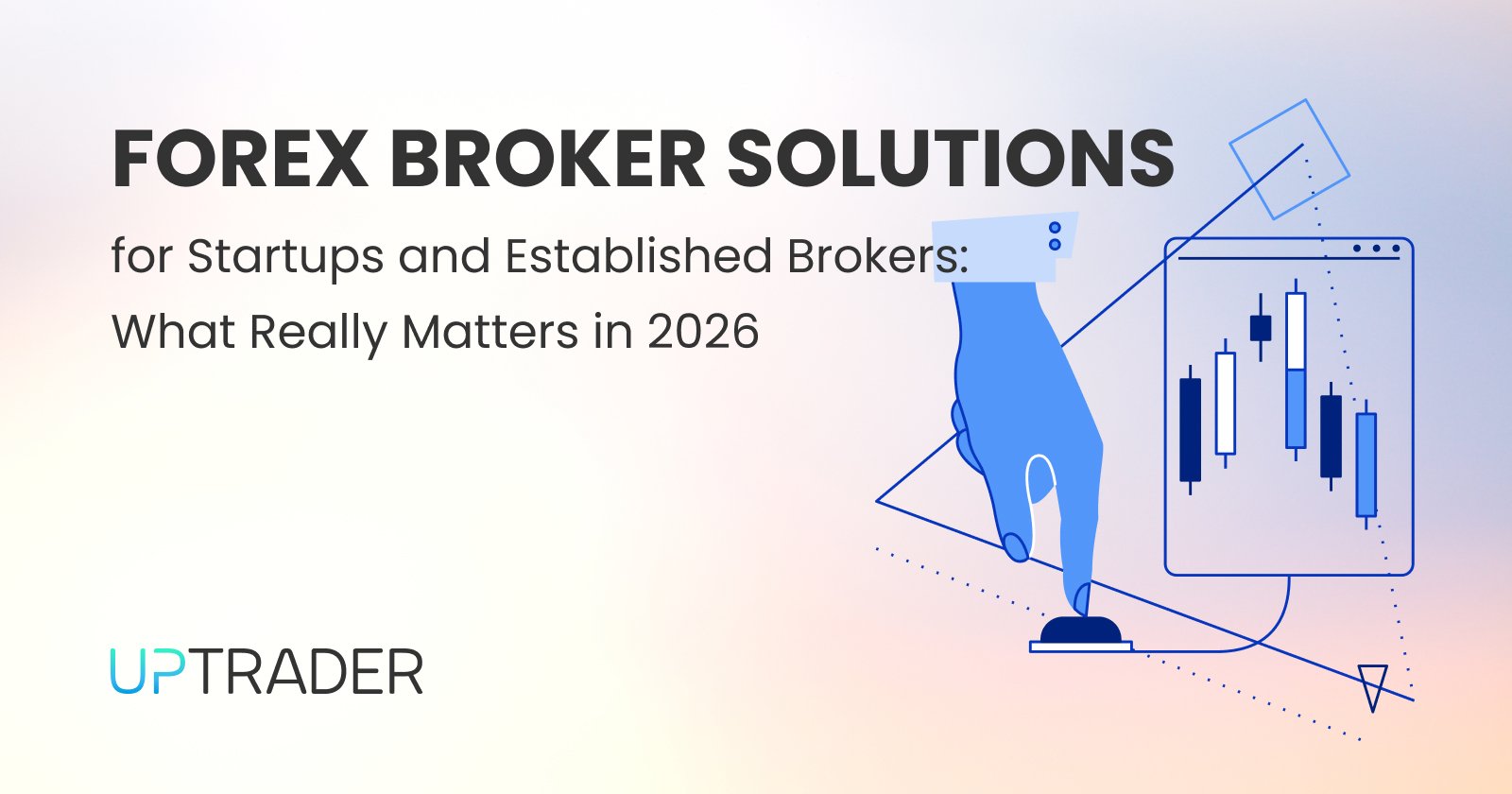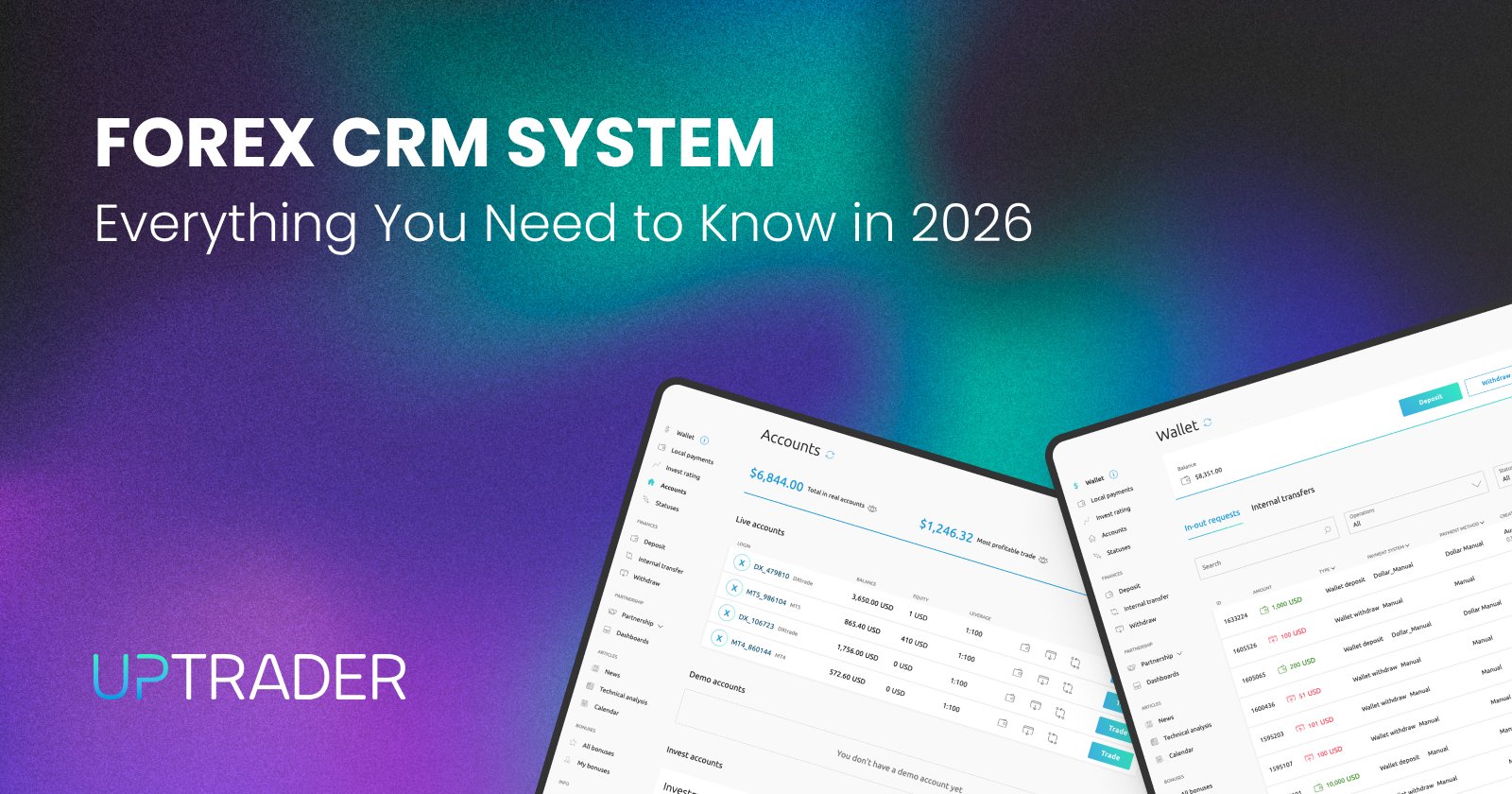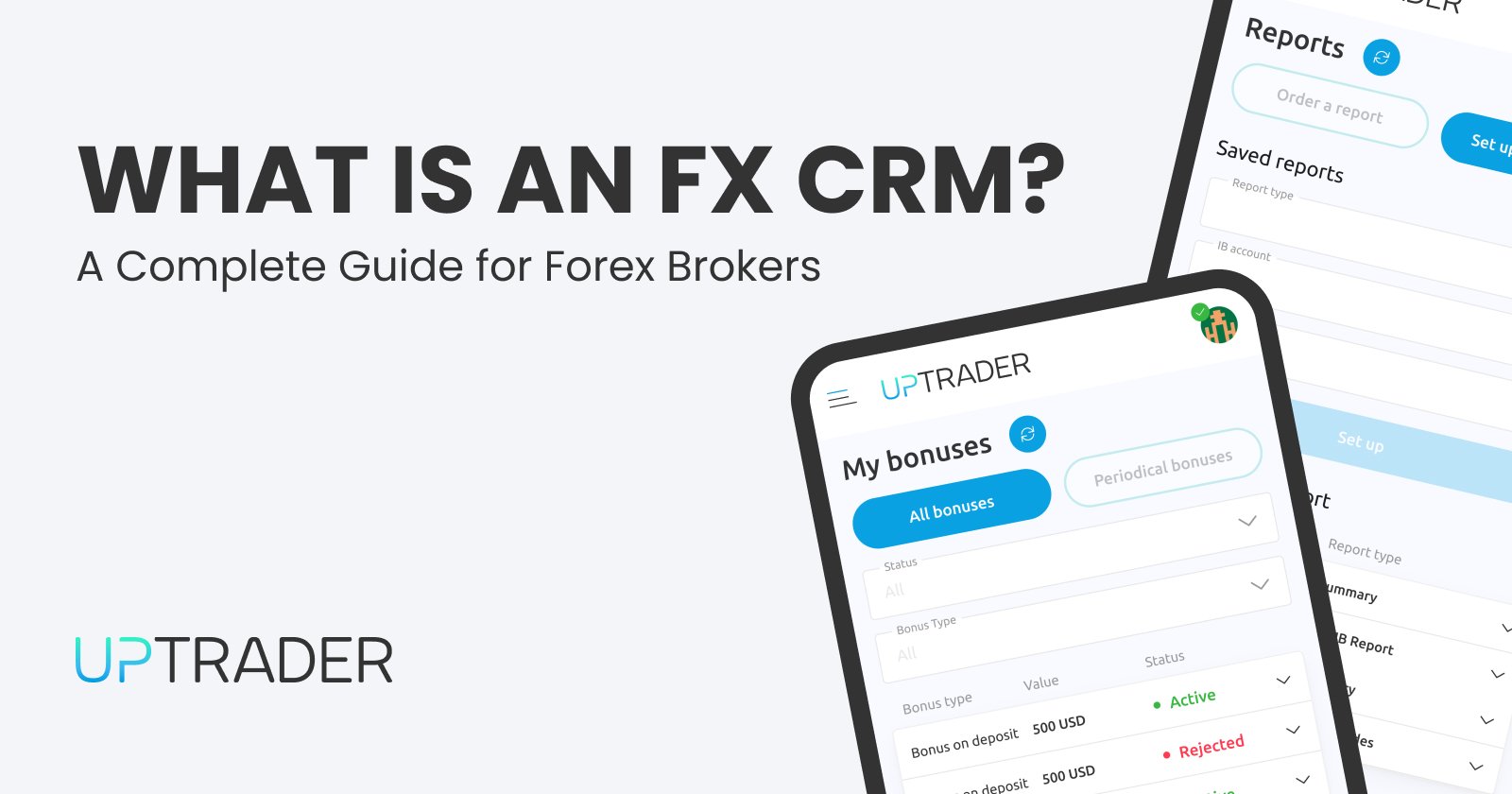Should You Invest in a Forex CRM in 2024? (Guide for Brokers)

Share this publication:
Introduction to Forex CRM
For any business, the customer is always at the center. The growth of your business depends on how you communicate and build long-lasting relationships with these customers.
And if you’re a forex broker, building open lines of clear and timely communication is absolutely important if you want to last long in the industry (since you’re responsible for handling the money and life-savings of thousands of people).
Some of the oldest and strongest financial institutions in the world are known to put customers in the center and deliver exceptional service. And customers always value personalized experiences more than anything.
That’s why having a well-oiled forex CRM system is absolutely essential for any brokerage out there. This guide will uncover the importance of having a forex CRM so you can make a decision before investing your time and money to implement one in your organization.
Let’s get started!
Explaining CRM for Forex Brokers
Imagine you’re running a forex brokerage, and your desk is overflowing with client data, trade records, and a never-ending to-do list. It’s easy to feel overwhelmed with so much going on. A CRM designed for forex brokers organizes all of the information and allows you to handle each customer with care and professionalism.
Think of a CRM, or Customer Relationship Management system, as your assistant who’s always on top of things. It helps you keep track of every interaction with your clients—from their first inquiry to each trade they make.
Instead of multiple spreadsheets, CRM organizes all this information in one convenient place. You’ll easily see who’s active, and who needs follow-up, and spot patterns in trading behaviors without any problems.
But CRM doesn’t just stop at organizing information. It can also automate many of your tasks. It can send out personalized emails to clients based on their trading activity, schedule reminders for follow-ups, and generate detailed reports on client performance. It’s like having a smart assistant that knows exactly when to remind you about a client who might need extra attention or when to update you on a critical trade.
The best part? CRM systems come with built-in analytics tools that let you monitor your firm’s performance in real time. It keeps track of marketing campaigns to see which ones are effective, gives extra attention to clients who are the most engaged, and does so autonomously.
Not to mention, a CRM for forex brokers makes it easy for your sales and customer support staff to build relationships more efficiently, allowing you to ultimately grow your forex trading business in the long run.
Choosing the Best Forex CRM Platform
Here are a few things to consider before choosing a Forex CRM platform for your brokerage:
Functionality and Features
Every CRM is built differently. But ideally, you should look for one that offers a user-friendly solution for some of the most important functions of your organization.
Some of the most important things to consider are:
- Lead management: Does the CRM present leads in a convenient format? Is it able to record leads from all of your traffic sources without requiring a lot of programming?
- Client onboarding: Client onboarding should be quick and simple especially for the sales staff.
- Communication tools: Good CRMs easily allow you to configure automated messaging and notifications to keep your customers informed. It should also seamlessly integrate with your email marketing platform.
- Reporting and analytics: Forex is all about numbers! Your CRM should help you track performance on all levels.
- Regulatory compliance: Advanced CRMs even come with compliance features built-in to prevent users from breaking policy.
Ease of Use
Some CRMs can be a pain to implement, causing you to break your entire system and rebuild it from scratch.
Look for a Forex CRM that offers a user-friendly interface and can easily integrate with your current work-flow. Also: your sales staff should be able to adapt to the interface quickly.
Ask for their opinion when making this decision because they are the one who will be interacting with the CRM the most.
Integration Capabilities
A lot of business owners forget about integration with other services. Your CRM should be able to easily integrate with other tools that you use in your business.
This includes email marketing platforms, accounting software, payment services, and so on. Even if the CRM can’t integrate directly, it should at least work with API codes or make it easy for your development team to carry out integrations.
Make sure to talk to your development team about this before pulling the trigger.
Scalability and Flexibility
As your brokerage grows, your CRM should be able to scale and adapt to your changing needs. Look for a platform that can accommodate your future expansion plans. Nobody wants to switch CRMs every few years.
Customer Support and Training
Evaluate the level of support and training provided by the CRM vendor. Customer service should be available at all times to help team members and your support staff.
If the customer service is poor and you’re not able to sort out problems in time, this can seriously affect the experience of traders on your platform.
Pricing and Value:
And last but not least – the overall cost of the CRM.
This includes subscription fees, implementation costs, and ongoing maintenance. Ensure that the platform provides a good return on your investment.
If you’d like to talk to a specialist to ask any questions regarding forex CRM or to get a price quote, reach out to us here.
We run a forex back office and CRM solution for brokers called UpTrader and it has all of the features you need to run your operations.
Top Forex CRM Software Providers in the Market
-
UpTrader CRM For Forex Brokers:
UpTrader CRM is a popular solution for brokers to manage their client base. It has an intuitive user-interface with a small learning curve and designed to improve the productivity of sales staff.
It comes with a forex back office, trader’s room, as well as a copy trading service. And the best part is that it takes just 1 day to set up.
You can get the entire thing up and running quickly and it integrates seamlessly with all trading platforms such as MT4, MT5, cTrader, and more.
Additionally, it offers efficient communication with traders, personalized support, and also detailed analytics for financial operations.
Your affiliates also get their own analytical tools that help them track deposits, clicks, and other useful data.
The CRM can be customized to your needs and organizational cools. It has all essential tools in one place.
Talk to a specialist here to get a free consultation (+ quote).
-
Pipedrive:
Pipedrive is a simple CRM solution that comes with AI automation and a Kanban-style interface.
It allows efficient lead management, sales pipeline tracking, and client communication, and it’s recommended for small forex brokers.
-
Zoho CRM:
Although Zoho CRM is not designed for forex companies, it’s still one of the oldest and most complex CRMs out there that can be used by brokers.
If you want to optimize for detailed marketing reports and analytics, Zoho is the way to go. However, it doesn’t have forex-specific features and doesn’t allow direct integration with trading platforms (unlike UpTrader).
It’s a lot better for marketers and other types of businesses but forex brokers can also benefit from it depending on their goals.
Learn more about Zoho CRM here
-
HubSpot:
HubSpot is a versatile CRM platform that combines customer relationship management with powerful marketing and sales tools, making it a popular choice for forex brokers looking to streamline their entire client-facing operations.
-
amoCRM:
amoCRM is a cloud-based CRM solution designed specifically for the forex and financial services industry, offering features such as automated lead capture, client segmentation, and customizable reporting.
Enhancing Broker-Client Relations with Forex CRM
You gain a comprehensive view of your clients’ trading history, allowing you to tailor your services and communication to better meet their needs. The CRM’s automated and personalized communication channels ( email, SMS, social media, etc ) help you stay in regular contact with your clients.
Client management features, such as automated ticket tracking and real-time updates, enable you to improve the overall client experience.
Data-driven insights from a Forex CRM empower you to make more informed decisions about product development, marketing campaigns, and overall business strategy, which in return helps your clients.
Conclusion and Final Thoughts
In forex trading, maintaining strong broker-client relationships can help you achieve success. By leveraging the power of a Forex CRM solution, you can get benefits that will help you enhance your client engagement, improve operational efficiency, and drive business growth.
As the forex trading industry grows, the importance of broker-client relations will only continue to grow. By investing in a Forex CRM solution, you can future-proof your brokerage, and stay ahead of the competition.
If you are still confused and looking for a Forex CRM solution or just want to give trading a chance, then visit UpTrader and talk to a consultant on our site to get started today! Also follow our official LinkedIn, Instagram, and Facebook pages, where we share useful information.







